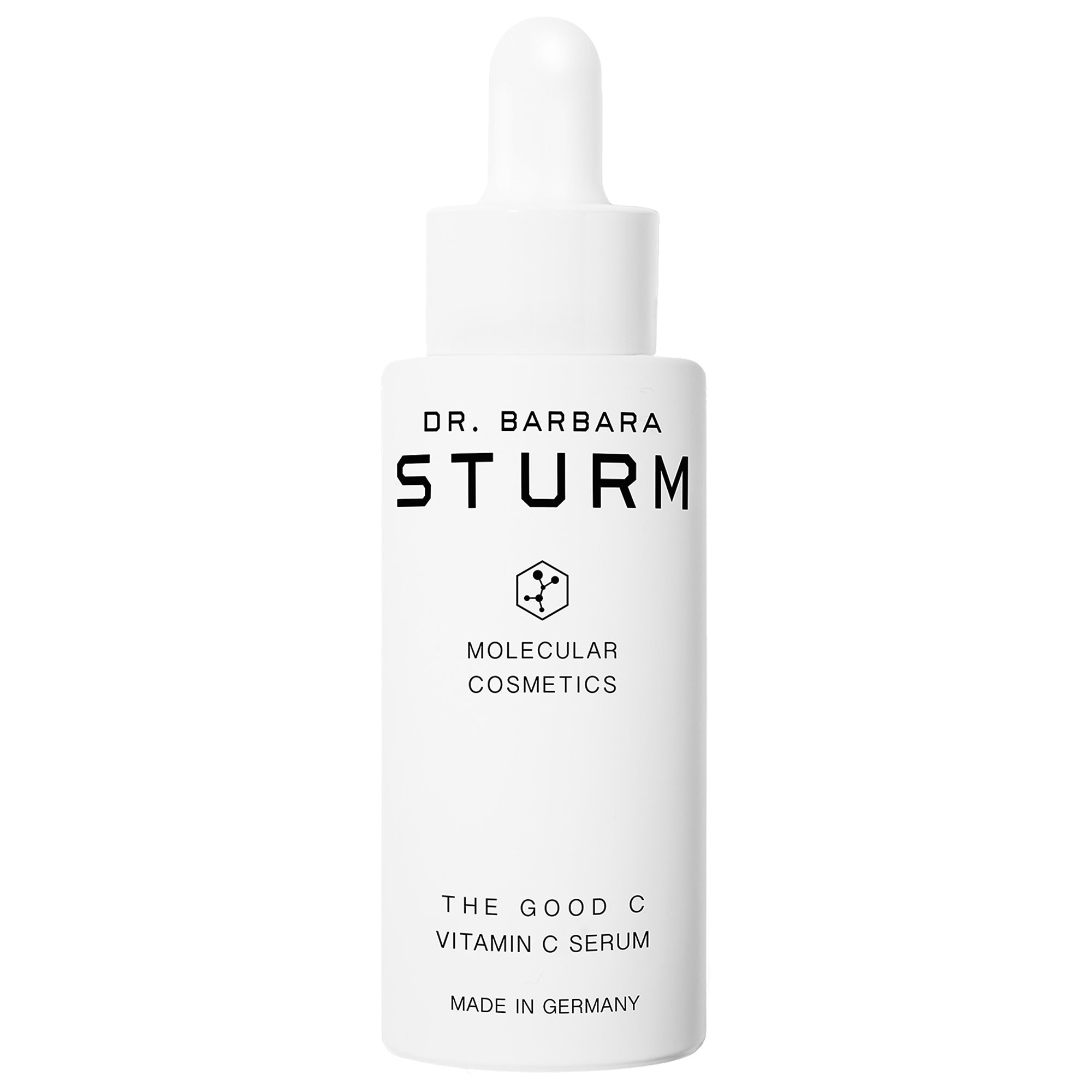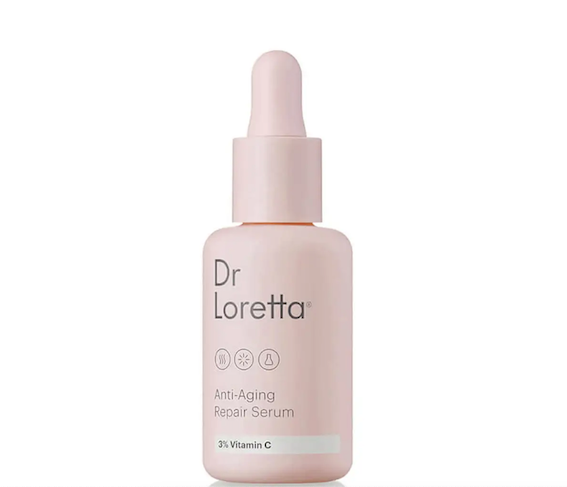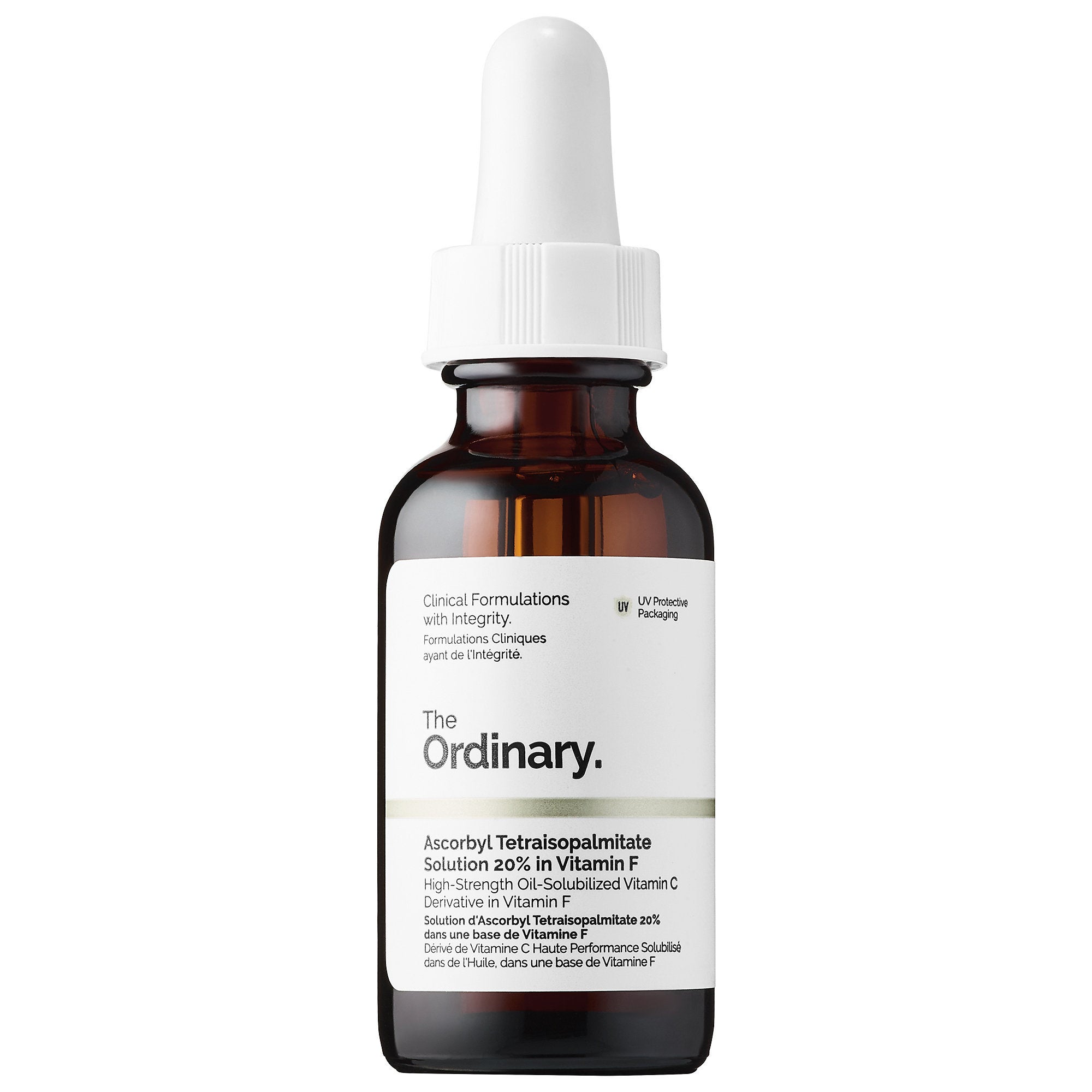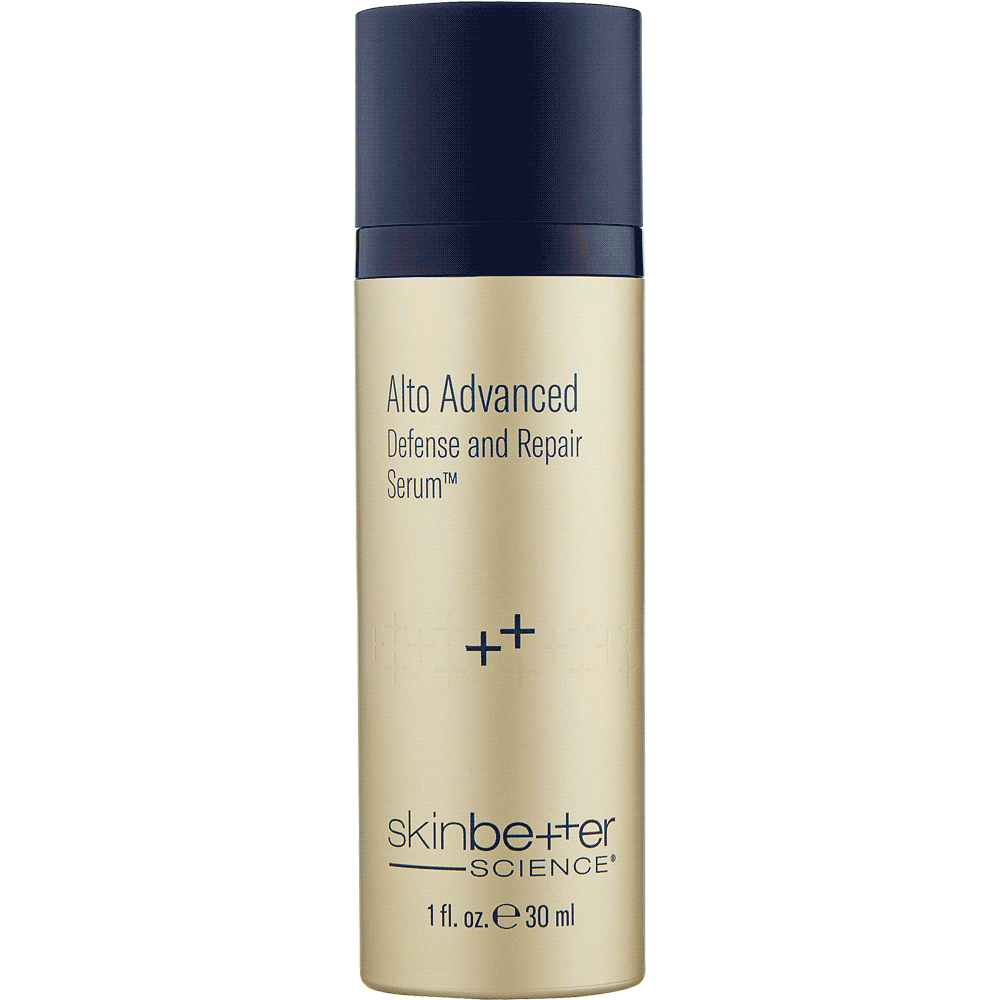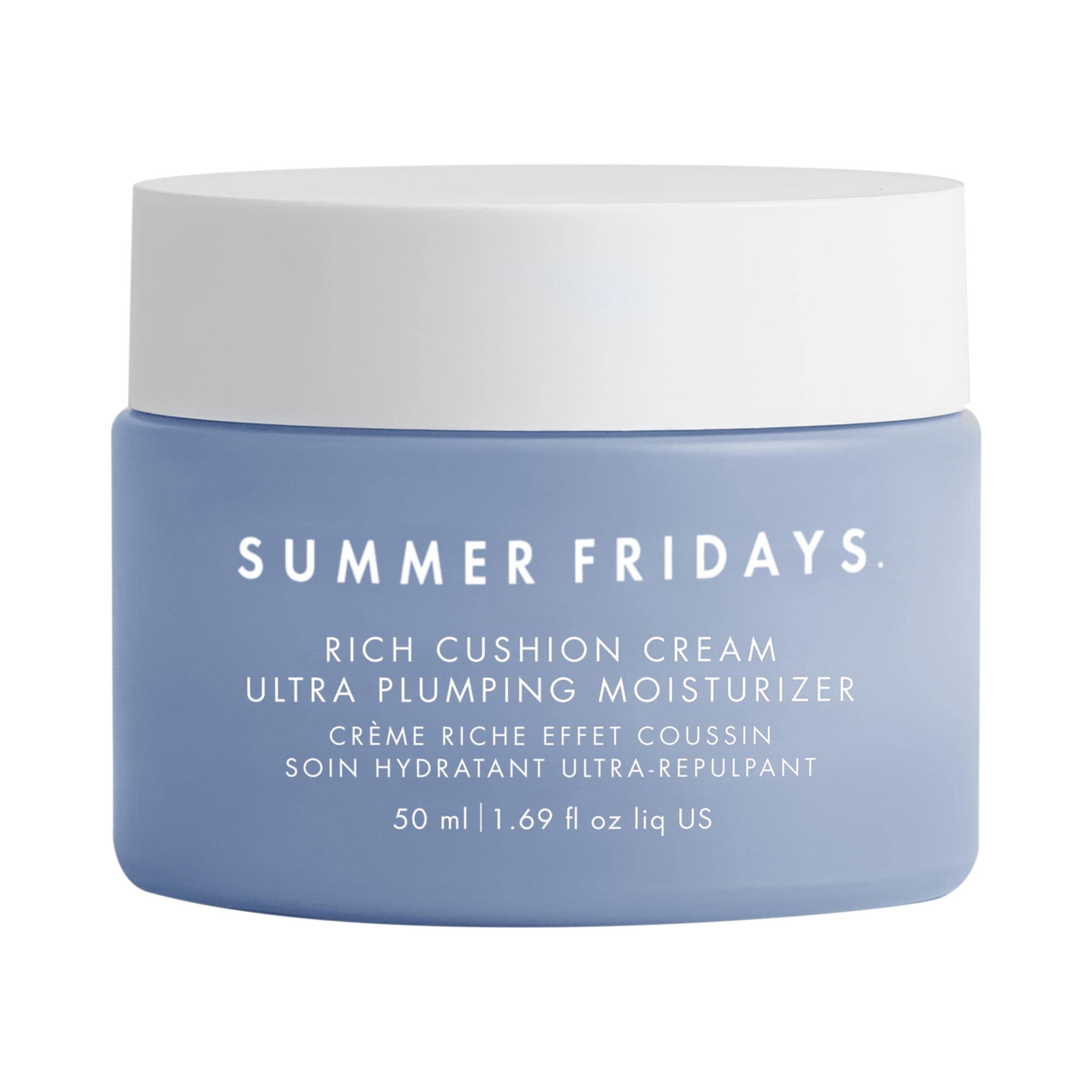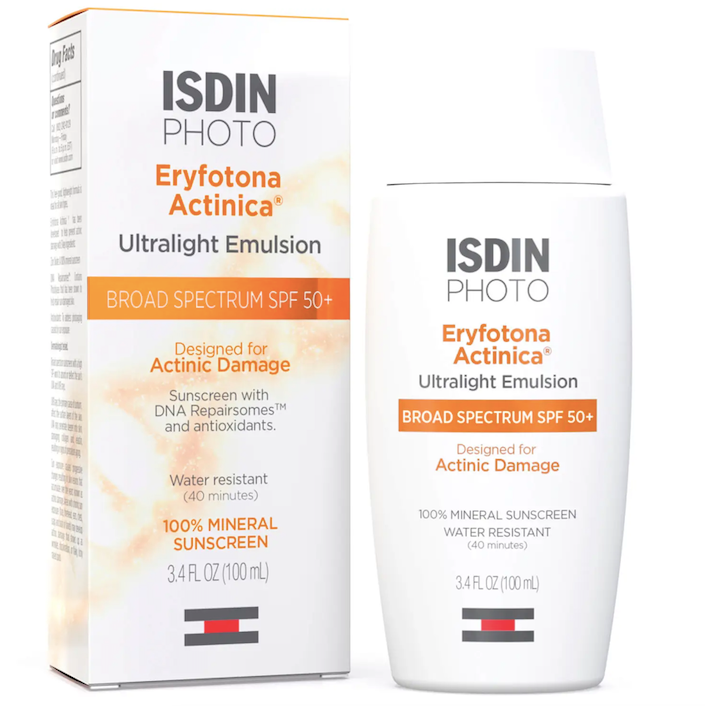A Derm Gave Me This Trick To Make My Sunscreen Work Twice As Hard
Welcome to Sun Blocked, Refinery29’s global call to action to wake up to the serious dangers of tanning. No lectures or shaming, we promise. Instead, our goal is to arm you with the facts you need to protect your skin to the best of your ability, because there’s no such thing as safe sun.
By now, it’s likely you’ve found a sunscreen that’s perfect for everyday wear, whether it’s a glowy tint or a lightweight moisturizer. A broad spectrum, high factor sunscreen has so many benefits, protecting skin against UVA rays (associated with premature aging and skin cancer) and UVB rays (responsible for sunburn). But wearing sunscreen is not the only thing you can do to protect your skin.
AdvertisementADVERTISEMENT
The other elements of your skincare routine, specifically the serum you apply right before your sunscreen, can help boost the efficacy of SPF. In fact, this one key step, which you might actually be missing, can supercharge your protection from the lightwaves that cause sun damage, also referred to as photo-aging. Happily, it's very easy to implement: For optimum protection, you might want to consider using an antioxidant serum under your sunscreen.
What are antioxidants?
There are a plethora of antioxidants out there, but the more popular ones often used in skincare include vitamin C, vitamin E, ferulic acid, resveratrol, and niacinamide. "During the day, antioxidants and sunscreen work synergistically to protect the skin from free radicals [unstable atoms that trigger oxidative stress in the body] in the environment and UV damage," explains board-certified dermatologist Lian Mack, MD. Using an antioxidant and SPF together protects the skin against all facets of environmental damage that can lead to DNA breakdown. "Ultimately, this prevents damage to skin cells," Dr. Mack explains. TL;DR: Your sunscreen is great, but antioxidants make it better.
Why do we need antioxidants in skincare?
When it comes to skin aging, the loss of collagen (a strengthening protein found naturally in the skin) is an important part of the equation. Sun exposure and general environmental exposure (just being outside) causes collagen degradation — it's natural. "After the age of 30, our skin no longer produces Type I and Type III collagen; in fact, we lose 1% of our collagen annually," explains Dr. Mack. "I recommend using an antioxidant serum in the morning with SPF 30 or higher. Most antioxidant serums contain vitamins C and E, which protect the skin from the free radicals that we come into contact with on a daily basis."
AdvertisementADVERTISEMENT
What's a good daily skincare routine with antioxidants?
You might be asking, Can I just use sunscreen with antioxidants in it? Dr. Mack recommends applying SPF and your antioxidant serum of choice separately. "My concern with using products that have both SPF and antioxidants is stability. Vitamin C, for example, is not stable when exposed to the environment, making air tight packaging the most ideal packaging for antioxidant serums. Most commercially available sunscreens are not in airtight packaging. Moreover, some patients may experience a [sensitivity] to [certain ingredients in] sunscreen or have irritation to vitamin C and other antioxidants. Keeping the two separate reduces risk and makes controlling for any adverse reactions simpler."
Luckily, most of the serums on the market today will contain some form of antioxidant. Vitamin C is the most popular. So, if you're already using vitamin C serum and sunscreen, you're good. But vitamin C serums are tricky. "One very common misconception that I see in my practice is the assumption that all vitamin C products are equal," says Dr. Mack. "There are a number of molecular variations of vitamin C, some more stable than others. L-ascorbic acid and Tetrahexyldecyl ascorbate are two very common forms. Tetrahexyldecyl ascorbate is fat soluble compared to ascorbic acid, which is water soluble. This property allows Tetrahexyldecyl ascorbate to be more readily absorbed by the top layer of the skin, making it more effective." Tetrahexyldecyl ascorbate is a more stable form of vitamin C, too.
If you’re looking for a good daily vitamin C serum with Tetrahexyldecyl ascorbate, try beauty editor favorites like Dr. Barbara Sturm The Good C Vitamin C Serum or Dr. Loretta Anti-Aging Repair Serum. If you’re looking for a more affordable price point, consider The Ordinary Ascorbyl Tetraisopalmitate Solution 20% in Vitamin F.
AdvertisementADVERTISEMENT
If you can find a daily serum with both vitamin C and vitamin E, (an ingredient that offers antioxidant protection and moisturizing benefits) even better. Dr. Mack recommends Skin Better Science Alto Advanced Defense and Repair Serum, a highly-potent antioxidant serum with vitamins C and E, plus 17 additional free-radical fighters, including micrococcus lysate (an enzyme that helps repair photo-damaged cells) and plankton extract (protects the skin from UV and blue-light damage). If you require extra moisture, consider sandwiching a moisturizer — like the new Summer Fridays Rich Cushion Cream Ultra Plumping Moisturizer — between the serum and sunscreen.
For your sunscreen step, Dr. Mack recommends ISDIN Eryfotona Actinica, which is a lightweight, mineral formula with broad-spectrum protection and a patented ingredient called "DNA Repairsomes" that helps repair existing sun damage. L’Oréal Paris Revitalift Broad-Spectrum SPF 50 is another sheer, lightweight option that’s a little more affordable (and an R29 favorite). If you’re interested in a tinted sunscreen, I love RMS Supernatural Radiance Serum Broad Spectrum SPF 30, which adds a tiny touch of glow and luminosity to the skin but feels invisible.
Can I use an antioxidant serum at night?
Dr. Mack’s mantra is, 'During the day you protect and at night you repair.' Of course, you don't need to wear sunscreen while you sleep. Instead, consider ingredients that treat and repair.
At the end of the day, Dr. Mack recommends a double cleanse, first with a balm (something like Provence Immortal Bloom Cleansing Balm) followed by a simple gel cleanser, like Cetaphil Gentle Skin Cleanser. Then, consider a gentle retinol — or a retinol alternative if you have sensitive skin — followed by a moisturizer (it can be the same one you used during the day) or a facial oil to keep your skin's moisture from evaporating while you sleep.
Skincare becomes a lot easier when you understand why you’re doing each step. When applying an antioxidant serum to your face in the morning, you’re not only brightening and toning your skin but adding an invisible layer of protection that complements your sunscreen. Of course, SPF is non-negotiable, but this preliminary step will make it work a little harder. Ultimately, your skin will benefit in the long run.
At Refinery29, we’re here to help you navigate this overwhelming world of stuff. All of our market picks are independently selected and curated by the editorial team. If you buy something we link to on our site, Refinery29 may earn commission.
AdvertisementADVERTISEMENT








